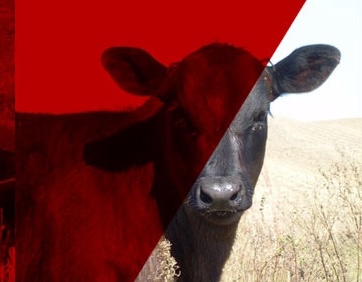Have you ever been overwhelmed by the amount of manure regulations in Nebraska? Or anywhere? Let’s make it a little easier to digest.
The good news is that Nebraska regulations related to manure do not change very often. In fact, the current regulations have been in effect since October 2011. So everyone can better follow the rules, let’s break it down into something that is a little easier to follow.
Take Home Message:
The ultimate purpose of all manure regulations is to keep water free from contamination.
Manure 101
- Manure regulations can be found in Title 130, Livestock Waste Control Regulations. A condensed manure version is also available. The regulations stem from the Clean Water Act, which is enforced by the US EPA, the ultimate regulating authority on manure.
- The primary regulatory authority in Nebraska is the Department of Environment and Energy.
- Livestock operations (also known as AFOs) are defined by the number of animals as small, medium or large, which determines which rules apply.
- The ultimate purpose of all manure regulations is to keep water free from contamination (i.e. nutrients or pathogens).
Requirements vs Recommendations
All AFOs, regardless of size, have manure regulations. Permitted operations, however, have more requirements than operations that are not required to obtain a permit. The following table provides an overview:
| Permitted Livestock Operations | Non-permitted Large CAFO | Non-permitted Medium or Small AFO | |
|---|---|---|---|
| Exclusion of livestock from surface water | Required | Required | Required |
| Discharge Reporting | Required | Required | Required |
| NDEE Inspection | Required | Required | Required |
| Livestock Waste Control Facility | Required | Not Required | Not Required |
| Setbacks away from water during manure application | 100 feet or 35 foot vegetative buffer | 100 feet or 35 foot vegetative buffer | 30 feet |
| State Construction and Operating Permit | Required | Not Required | Not Required |
| NPDES Permit | Sometimes | Not Required | Not Required |
| Record Keeping | Required | Recommended | Recommended |
| Nutrient Management Plan | Required | Recommended | Recommended |
| Land Application Training | Required | Recommended | Recommended |
| Annual Report and fee | Required | Not needed | Not needed |
* CAFO determination is based on size, size and location or potential to discharge, or designation by the Director of the Department of Environment and Energy.
Who needs a permit?
The duty to obtain a permit is not based solely on the size of the operation, rather, it is based on the potential for contamination of waters of the State (known as a discharge). Factors that affect risk of discharge include type of housing, management of manure, separation distances and terrain. If there is no risk of discharge, no permit is required, even for large CAFOs. The Nebraska Department of Environment and Energy is responsible for determining if a proposed or existing livestock operation is required to have a permit following an inspection of the livestock facility.
If there is a potential to discharge, a permit will be required. There are two types of permits in Nebraska, a state Construction and Operating Permit and a National Pollutant Discharge Elimination System (NPDES) permit. An operation may be required to have both types.
Nutrient Management Plans
The purpose of a nutrient management plan is to balance nutrient inputs (including both manure and commercial fertilizers) with crop nutrient needs, thus ensuring an adequate supply of nutrients to sustain profitable crop production while minimizing risk of water pollution. Nutrient management plans are tailored to the individual operation, but permitted operations must include the following:
- Maps and facilities descriptions including types of animals, capacity and how much manure is expected to be produced)
- Mortality management plan
- Chemical management plan
- Descriptions of how the manure/nutrients will be utilized including tentative rates and fields of application
- Nutrient analyses of soil, manure and irrigation water
- P-Index
- Conservation practices in place or expected to be in place to control runoff
Record Keeping

As referenced in the table above, there are numerous records that a permitted operation must keep, and fewer that others must maintain. Livestock producers are encouraged to develop checklists of items to assist in completing inspections of the production area and manure-related activities and to provide a means of recording the results of those inspections. One such checklist is the Nutrient Management Record Keeping Calendar available from Nebraska Extension. While the calendar includes everything a permitted operation needs related to manure records, it is designed to be used by any livestock operation.
AFOs that have livestock waste control facilities must, at a minimum:
- Inspect water lines daily
- Record daily precipitation
- Inspect the production area and manure storages at least weekly, including stormwater diversions (both clean and contaminated)
- Inspect irrigation systems used for manure prior to and during use
- Record manure sludge levels annually
- Maintain all records for at least 5 years
A guidance document for small and medium AFOs, which explains more about these records, is provided on the NDEE website.
Conclusion
Manure rules can be hard to remember, but always remember your Nebraska Department of Environment and Energy representative is a great resource. Don’t be afraid to call them if you have questions. And, as always, the UNL manure team is here to help if called upon.
Interviews with the authors of BeefWatch newsletter articles become available throughout the month of publication and are accessible at https://go.unl.edu/podcast.
